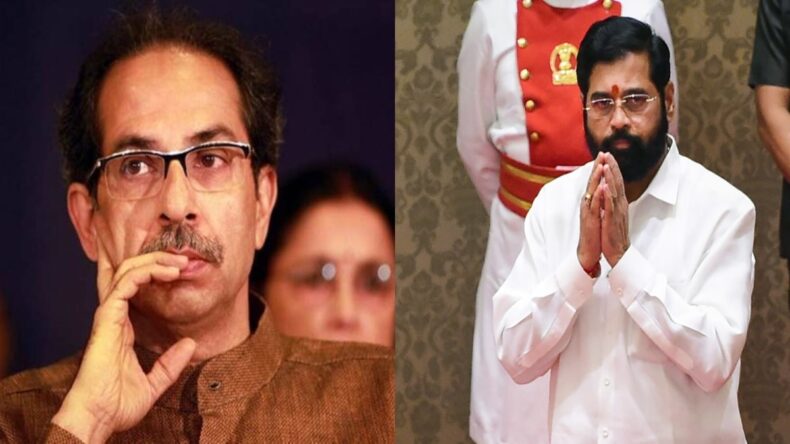Supreme Court rulings shake up Shiv Sena’s internal dynamics and political fortunes in Maharashtra
The Shiv Sena, a regional political party in the Indian state of Maharashtra, has been embroiled in a number of disputes over the past few years, with factions within the party vying for control and recognition.
Two recent decisions by the Supreme Court of India have brought some clarity to these disputes, although they may have significant political implications for the party. The first dispute involves the use of the Shiv Sena name and symbol. After the death of the party’s founder, Bal Thackeray, in 2012, the party split into two factions, one led by Thackeray’s son, Uddhav Thackeray, and the other by his nephew, Raj Thackeray. The two factions have been locked in a legal battle over the use of the party’s name and symbol, with both claiming the right to use them.
The dispute was finally resolved in July 2021, when the Supreme Court ruled that only Uddhav Thackeray’s faction has the right to use the party’s name and symbol, and that the other faction led by Raj Thackeray must choose a new name and symbol. The court also directed the Election Commission of India to consider the matter within six months.
The second dispute involves the election of Uddhav Thackeray as a member of the legislative council in Maharashtra. Thackeray, who was not a member of the legislative assembly, was appointed as the chief minister of Maharashtra in 2019. To become a member of the legislative council, he needed to be elected by members of the assembly.
However, the election was challenged by a member of the Shiv Sena party, Eknath Shinde, who claimed that Thackeray’s nomination papers were not in order. The matter was initially heard by the Bombay High Court, which ruled in favor of Thackeray. However, the case was appealed to the Supreme Court, which has now stayed the High Court’s decision and directed the Election Commission of India to examine the matter afresh.
The court has also issued a notice to the Shinde camp to respond to the order within six weeks. The Shiv Sena is currently in power in Maharashtra in alliance with the Indian National Congress and the Nationalist Congress Party, and the verdicts are likely to have an impact on the party’s internal dynamics and its political fortunes in the upcoming state elections.
The party has been facing several challenges in recent months, including criticism over its handling of the COVID-19 pandemic and allegations of corruption. The Shiv Sena was founded by Bal Thackeray in 1966 and has been a major force in Maharashtra’s politics for several decades. The party is known for its hardline Hindutva ideology, which emphasizes the interests of Marathi speakers and seeks to promote their culture and identity.
The party has also been accused of promoting violence against Muslims and migrants from other states. Despite these controversies, the Shiv Sena has managed to retain its support base in Maharashtra, thanks in part to its ability to tap into local grievances and provide a sense of identity and community to its followers.
The party has also been successful in forging alliances with other regional and national parties, which has helped it to expand its influence beyond Maharashtra. However, the recent verdicts by the Supreme Court may challenge the party’s ability to maintain its unity and its hold on power in Maharashtra. The Shiv Sena will need to navigate these challenges carefully if it hopes to remain a dominant force in the state’s politics.












